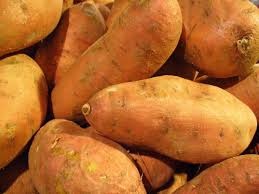Caring for Creation and the Poor
As Pope Francis begins his Encyclical, LAUDATO SI’, ON CARE FOR OUR COMMON HOME, he starts by noting St. Francis "was particularly concerned for God’s creation and for the poor..." And he stressed, "The urgent challenge to protect our common home includes a concern to bring the whole human family together to seek a sustainable and integral development... We require a new and universal solidarity... All of us can cooperate as instruments of God for the care of creation, each according to his or her own culture, experience, involvements and talents... I would like from the outset to show how faith convictions can offer Christians, and some other believers as well, ample motivation to care for nature and for the most vulnerable of their brothers and sisters."
…We need to strengthen the conviction that we are one single human family. There are no frontiers or barriers, political or social, behind which we can hide, still less is there room for the globalization of indifference…"
The Pope conveys that we cannot focus simply on our own needs when our brother is in need, "Those who tilled and kept the land were obliged to share its fruits, especially with the poor, with widows, orphans and foreigners in their midst... In the Judaeo-Christian tradition, the word “creation” has a broader meaning than 'nature', for it has to do with God’s loving plan in which every creature has its own value and significance. Nature is usually seen as a system which can be studied, understood and controlled, whereas creation can only be understood as a gift from the outstretched hand of the Father of all, and as a reality illuminated by the love which calls us together into universal communion. This rediscovery of nature can never be at the cost of the freedom and responsibility of human beings who, as part of the world, have the duty to cultivate their abilities in order to protect it and develop its potential."
This St. Matthew-GIFT smart, sustainable farming intiative will provide the resources to both care for the earth and care for the poor. This project advocates no-till and "smart," eco-friendly strategies for monitoring and improving soil conditions -- including the use of organic fertilizers and sensors for optimizing the use of water.
This project helps fulfill our duty to be both stewards of God's gift of creation and caretakers and "co-developers" on behalf of our brothers and sisters who are suffering due to inadequate access to food and nutrition as well.
This project also provides a venue for a linked Church community where people share their "experiences, involvements and talents" in sustainability and solidarity -- providing for the most vulnerable of our brothers and sisters. Just as the Pope suggests is needed within the Christian community. It's a way for the "Church for the Poor" to directly counter the globalization of indifference.
This is what happened at St. Matthew Parish. One day, members of the Parish realized they were uniquely blessed with experiences, expertise, perspectives and resources that covered the gamut of smart, sustainable farming and solidarity. The Parishioners began to plan for ways to share these gifts with our fellow Church members and with those in need globally -- so that more and more Parishes could care for creation and the poor.
